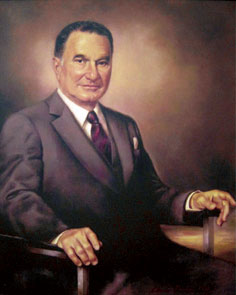
Coffee importer and philanthropist William B. Burkenroad Jr. is the namesake of both the Burkenroad Institute and Burkenroad Reports
1990
The W. B. and Evelyn L. Burkenroad Institute for the Study of Ethics and Leadership in Management is established. The institute was made possible through a gift from Evelyn and William B. “Billy” Burkenroad Jr., chairman of coffee importer J. Aron and Co. and one of the city’s most prominent philanthropists.
1991
The Levy-Rosenblum Institute for Entrepreneurship is established through a gift of Mr. and Mrs. Paul S. Rosenblum, Mrs. Edward D. Levy and Dr. Edward D. Levy Jr. John B. Elstrott Jr., a professor of practice and successful entrepreneur, becomes the institute’s first director. The Burkenroad Institute presents its first Burkenroad Symposium on Business and Society. The program features journalist John Helyar, ethicist Joanne Ciulla and former GM executive Elmer Johnson in a discussion of lying in business.
1992
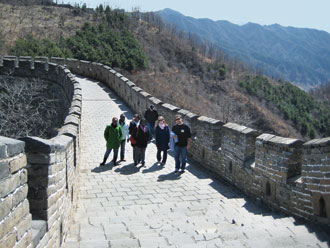
The Goldring Institute was established in 1992 to coordinate the Freeman School’s growing number of international programs and initiatives.
The Goldring Institute of International Business is established through a major gift from the Goldring Family Foundation. Expanding the Freeman School internationally was one of McFarland’s primary goals as dean, and the Goldring Institute would serve as the administrative vehicle to develop and deliver new global programs. John M. Trapani III is appointed director of the institute.
The Levy-Rosenblum Institute establishes the Family Business Center to assist family-owned enterprises with the unique issues and challenges of growing and prospering from one generation to the next. The center, directed by John Elstrott, is coordinated through the Levy-Rosenblum Institute.
1993
The Master of Accounting (MACC T) program is launched.
The Freeman School becomes the first business school in the U.S. to offer an executive MBA program in Taiwan with the launch of its Asia Executive MBA Program.
Peter Ricchiuti, professor of practice and former assistant state treasurer for the state of Louisiana, launches Freeman Reports, an equities research program that puts students to work writing reports on small companies that typically fly under the radar of Wall Street. The program was renamed Burkenroad Reports in 1998 in recognition of a gift from the Burkenroad family. Since the program’s founding, more than 600 Burkenroad analysts have gone on to careers in the investment industry, and the program has earned praise in The New York Times, The Wall Street Journal, Financial Times and other publications.
1994
The Stewart Center for Executive Education, which coordinates the Freeman School’s executive and professional programs, is dedicated with a ceremony honoring Frank and Paulette Stewart. Frank Stewart (BBA ’57) served as chairman of Stewart Enterprises, one of the nation’s leading funeral and cemetery services companies.
1995
The Freeman School begins offering a doctoral program for faculty members at Instituto Tecnológico y de Estudios Superiores de Monterrey (ITESM) in Monterrey, Mexico. The program will eventually grow into what is today known as the Latin American Faculty Development PhD Program, which enables faculty members at leading Latin American business schools to earn a PhD while maintaining their full-time teaching responsibilities. Since the program’s launch, 70 business instructors in Latin America have earned PhDs from the Freeman School.
1996
Burkenroad Reports hosts its first Investment Conference.
Rosa Freeman Keller Plaza, which fronts Goldring/Woldenberg Hall, is completed and dedicated. The plaza is made possible through a gift from Keller, daughter of A. B. Freeman and a prominent philanthropist and civil rights activist.
1998
The Finance Case Competition, which debuted in 1997, is renamed the Rolanette and Berdon Lawrence Finance Case Competition in recognition of a gift from Mr. and Mrs. Lawrence. Berdon Lawrence (BBA ’64, MBA ’65) is the founder of Hollywood Marine and former chairman of Kirby Corp., an operator of inland tank barges headquartered in Houston.
1999
The Darwin S. Fenner Student Managed Fund is established. Named in honor of the late financier in recognition of a gift from his son, Darwin C. Fenner (BBA ’54, MBA ’69), the program enables honors students to gain real-world investment experience by managing nearly $3.25 million in three separate equity portfolios. The Freeman School launches its first MBA concentration in energy finance.
2000
Goldring/Woldenberg Hall becomes the first building on campus to implement a wireless network.
2001
Hancock Bank launches the Hancock Horizon Burkenroad Small Cap Fund, a mutual fund that uses Burkenroad Reports as a primary source of research and invests in many of the companies covered by the program. The fund was recently ranked among the top 1 percent of small cap mutual funds for the 10-year period.
2002
The first Tulane Business Plan Competition is held. Shane Fulkerson (MBA ’02) wins the grand prize of $1,500 with his plan for WhiteWire, a communications first that provides wireless local area networks to commercial, institutional and high-end residential markets. The Freeman School launches an Executive MBA program in Houston.
2003
Goldring/Woldenberg Hall II, the Freeman School’s new building, is completed. Built at a cost of $25 million and housing a state-of-the-art trading center, the building becomes the new home for graduate and executive programs at the Freeman School. In addition to William A. Goldring (BBA ’64) and the Woldenberg Foundation, anchor gifts for the building were provided by Frank B. Stewart Jr. (BBA ’57), Entergy Corp., the Ella West Freeman Foundation, John E. Koerner III (A&S ’65, JD ’69, MBA ’70), the Kresge Foundation, C. Berdon Lawrence (BBA ’64, MBA ’65) and James J. Reiss Jr. (BBA ’60).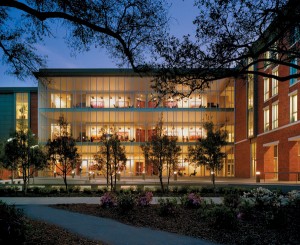
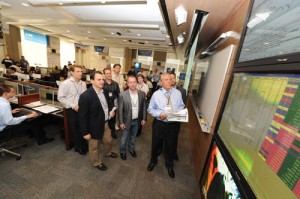
The technological centerpiece of Goldring/ Woldenberg Hall II is the Trading Center, a $1.5 million simulated trading floor.
The Master of Finance (MFIN ) program is launched.
The Tulane Energy Institute is established. Originally called the Entergy-Tulane Energy Institute in recognition of a five-year sponsorship by the company, the institute coordinates energy programs and research at the Freeman School. James W. McFarland is named the institute’s first executive director.
2005
James W. McFarland steps down and Angelo DeNisi, professor of management at Texas A&M University, is appointed dean. To honor McFarland for his many years of service to the Freeman School, friends and colleagues establish the James W. McFarland Distinguished Chair in Business.
The Freeman School agrees to begin admitting freshmen. Since the undergraduate program was reinstated in 1978, students had been admitted to the business school following sophomore year. With this new arrangement, students can now enroll in the Freeman School as freshmen.
Just eight weeks after DeNisi’s appointment, Hurricane Katrina ravages New Orleans and severely damages Tulane’s uptown campus, forcing the university to cancel classes for the fall 2005 semester. While Goldring/Woldenberg Hall II survives the storm in good shape, Goldring/Woldenberg Hall I suffers significant damage due to flooding.
2006
Tulane and the Freeman School reopen following Hurricane Katrina. In the wake of the storm, the Freeman School introduces a new MBA curriculum designed to give exiled students a more dynamic, exciting program to return to. The revamped curriculum features two innovative new modules. Practice of Management puts students to work on experiential learning projects involving real businesses in the community, while Global Leadership combines classroom study of international business with trips to three global business locations. The Freeman School becomes the first business school in the nation to send its MBA students as a class to three international destinations as part of the curriculum.
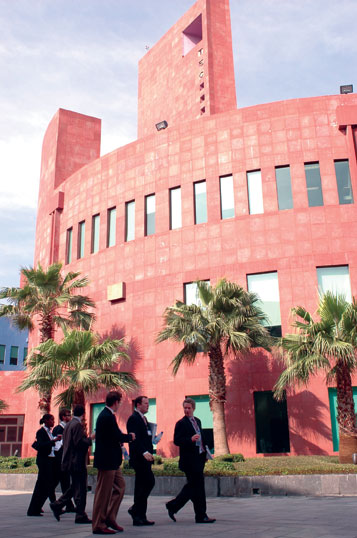
The Freeman School’s second-year MBA class traveled to Monterrey, Mexico, in 2007 for the first MBA Global Leadership trip.
2007
The Freeman School launches the Global MBA program, a joint venture with three Latin American institutions that enables students to earn a Master of Global Management degree by becoming part of an international cohort and completing intensive courses in four international locations.
2008
The Post-Doctoral Bridge-To-Business program is established to provide holders of PhDs in disciplines other than business with the additional training necessary to teach in AACSB-accredited business schools worldwide. The Freeman School is one of just a handful of business schools selected for the program.
2009
Entrepreneur magazine ranks Freeman at No. 4 in the nation on its list of Top Graduate Programs for Entrepreneurs.
2010
Investment guru Jim Cramer brings his popular CNBC show “Mad Money” to the Freeman School with a Tulane-themed program recorded before a live audience in Dixon Hall.
2011
Ira Solomon is named the 13th dean of the A. B. Freeman School of Business. Solomon comes to the Freeman School from the University of Illinois, where he served as the R.C. Evans Endowed Chair in Business and head of the Department of Accountancy. One of Solomon’s first initiatives as dean is an ambitious faculty expansion program designed to grow the ranks of the Freeman School’s tenured and tenure-track faculty by 40 percent.
The Master of Management in Energy (MMG ) program is established. The one-year program prepares students for a variety of management roles with energy companies.
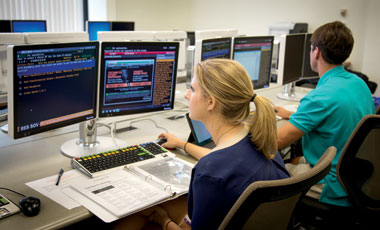
The Freeman School’s Financial Analysis Lab, featuring the Bloomberg Professional service, was established in 2012.
2012
The Freeman School tops the nation in MBA placement, with 98.1 percent of the full-time MBA class employed three months after graduation.
The Freeman School unveils a new computer lab dedicated exclusively to the Bloomberg Professional service.
2013
The Tulane Association of Business Alumni (TABA) launches its first chapters outside New Orleans in more than 20 years. The initial chapter cities are Houston, Miami, Nashville, New York and Washington D.C. The Freeman School unveils an ambitious new strategic plan to guide the school through the next five years.
2014
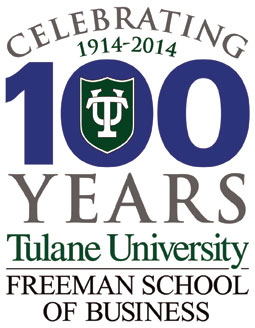 The A. B. Freeman School of Business celebrates its Centennial with the theme, “Celebrating a brilliant century, building an even brighter future.”
The A. B. Freeman School of Business celebrates its Centennial with the theme, “Celebrating a brilliant century, building an even brighter future.”

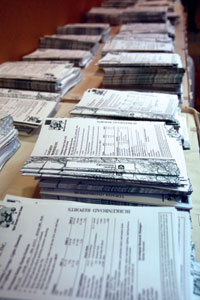
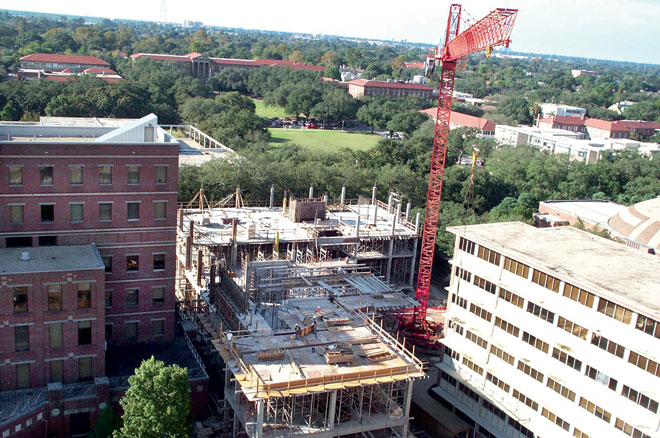
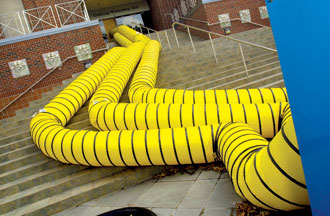
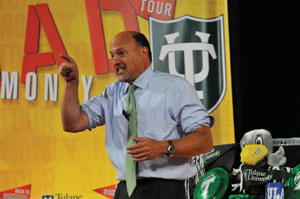
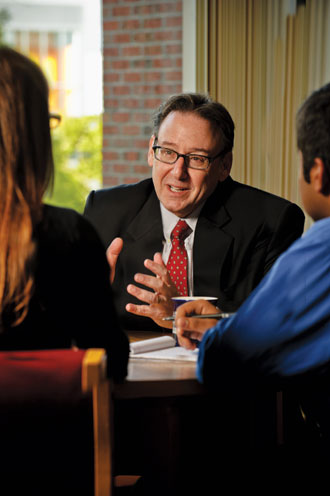


{ 0 comments… add one now }